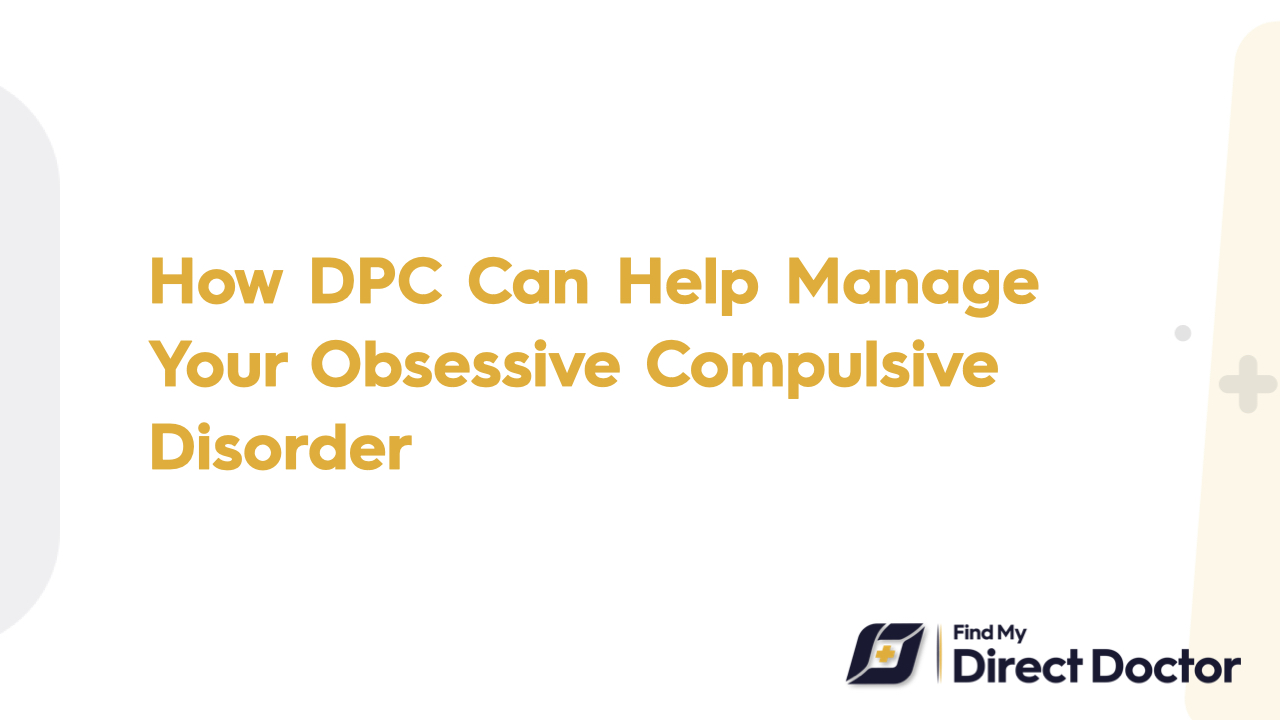



The mental health illness known as obsessive compulsive disorder (OCD) is typified by recurring, unwelcome thoughts (called obsessions) and rituals or activities (called compulsions) that people feel driven to carry out. These compulsions are frequently performed in an attempt to lessen the tension brought on by the obsessions. Excessive cleaning, frequent checking, counting, or arranging items in a particular manner are some symptoms. Significant distress and life damage may result from the condition's interference with relationships and everyday activities. Although the precise etiology is unknown, OCD is thought to be caused by a chemical imbalance in the brain and may be impacted by environmental and genetic factors.

A distinctive and individualized method of treating obsessive compulsive disorder (OCD) is provided by Direct Primary Care (DPC). DPC gives patients direct access to their doctor, facilitating more frequent check-ups and in-depth conversations about problems. In a private and encouraging setting, providers can create individualized treatment programs that might involve behavioral therapy, medication management, or referrals to mental health professionals. Patients are empowered to better control their OCD because of this continuing relationship, which guarantees that they receive constant care and treatment modifications as necessary.
DPC provides OCD sufferers with a number of advantages, especially because it prioritizes continuity and individualized treatment. Patients can develop a closer relationship with their doctor and receive more individualized care because DPC providers usually handle fewer patients. As a result, the patient's unique OCD challenges are better understood, enabling more efficient treatment. Additionally, DPC facilitates quicker access to care, which is particularly helpful for managing mental health issues like OCD, where prompt interventions and continuous support are essential for reducing symptoms and enhancing quality of life.
The highly specialized approach to treating obsessive compulsive disorder in DPC guarantees that treatment programs are customized to meet the specific requirements of each patient. By taking the time to learn about the patient's particular obsessions and compulsions, providers can develop a complete plan that includes medication, treatment, and lifestyle changes. The treatment plan can be modified in real time to address issues as they emerge with the added advantage of routine follow-ups. Long-term effective management of OCD requires a sense of stability and trust, which is fostered by this individualized approach.
Previous Post